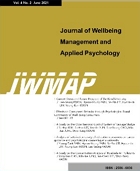- Log In/Sign Up
- E-ISSN2586-6036
- KCI
 E-ISSN : 2586-6036
E-ISSN : 2586-6036
Abstract
In Korea, where the residential environment of well-being has been especially developed, marketing using well-being brands has been actively carried out, and more recently, there has been a growing interest in the well-being brand experience and the correct understanding of consumers' perceptions and attitudes. This study was intended to reveal that the experience of well-being brands increases the attitude and confidence of brands, and consequently positively acts on the intention and loyalty of purchasing them. First of all, the well-being brand experience not only works positively on brand trust and attitude, but also raises the intention of buying again. Second, well-being brand trust is showing a positive effect on brand attitudes and intent to buy back. Third, the well-being brand attitude turned out to have a positive effect on the intention of repurchase. Unlike conventional well-being brand-related research, this study focuses on brand experience, so it provides a new understanding of well-being brand experience and consumer psychology and behavior in well-being brand marketing. Thus, adding a new perspective to existing well-being brand research, the company's perspective provides practical implications that should be considered for successful well-being marketing.
- keywords
- Consumers' Perceptions, Brand Attitudes, Repurchase Intent, Brand Experience, Consumer Psychology
- Downloaded
- Viewed
- 0KCI Citations
- 0WOS Citations













